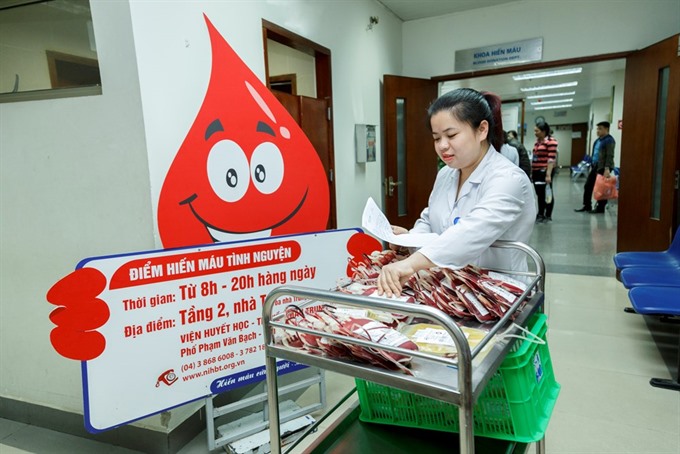 Society
Society

A National Blood Centre will be formed under the National Institute of Haematology and Blood Transfusion (NIHBT), as decided by the Ministry of Health.
 |
| A health worker transports blood for safe storage. — Photo vietnamplus.vn |
HÀ NỘI — A National Blood Centre will be formed under the National Institute of Haematology and Blood Transfusion (NIHBT), as decided by the Ministry of Health.
The decision was announced on Wednesday, online newspaper Vietnamplus reported.
NIHBT director Bạch Quốc Khánh said the establishment of the blood centre would be a crucial landmark in the development of Việt Nam’s blood transfusion sector, catching up with the world’s development trend.
Once operational, the National Blood Centre will have state-of-the-art facilities and instruments to meet the requirements of mobilising, receiving, regulating and supplying blood, the newspaper reported. The centre will be a premise for the development of an independent blood centre under the health ministry.
Since its inception, NIHBT has carried out a regional blood transfusion project using loans from World Bank, under which it has built a modern blood transfusion centre, with a capacity of 90,000 units of blood annually.
Up to now, the centre has tripled its initial design capacity. In 2017 alone, the institute received over 303,000 units of blood, 98 per cent of which came from voluntary donors.
Khánh said NIHBT expected to receive some 400,000 units of blood annually by 2020 and 60,000 units by 2030.
It is with these figures in mind that NIHBT has decided to set up the National Blood Centre, gradually bringing it under the management of the health ministry.
On September 8, 2017, Minister of Health Nguyễn Thị Kim Tiến signed decision No 4164/QD-BYT on the formation of the “National Blood Centre” under NIHBT, with the major responsibility of blood transfusion while ensuring the availability of safe blood sources, blood products and stem cells for emergency cases and medical treatment as well as for national security. — VNS




